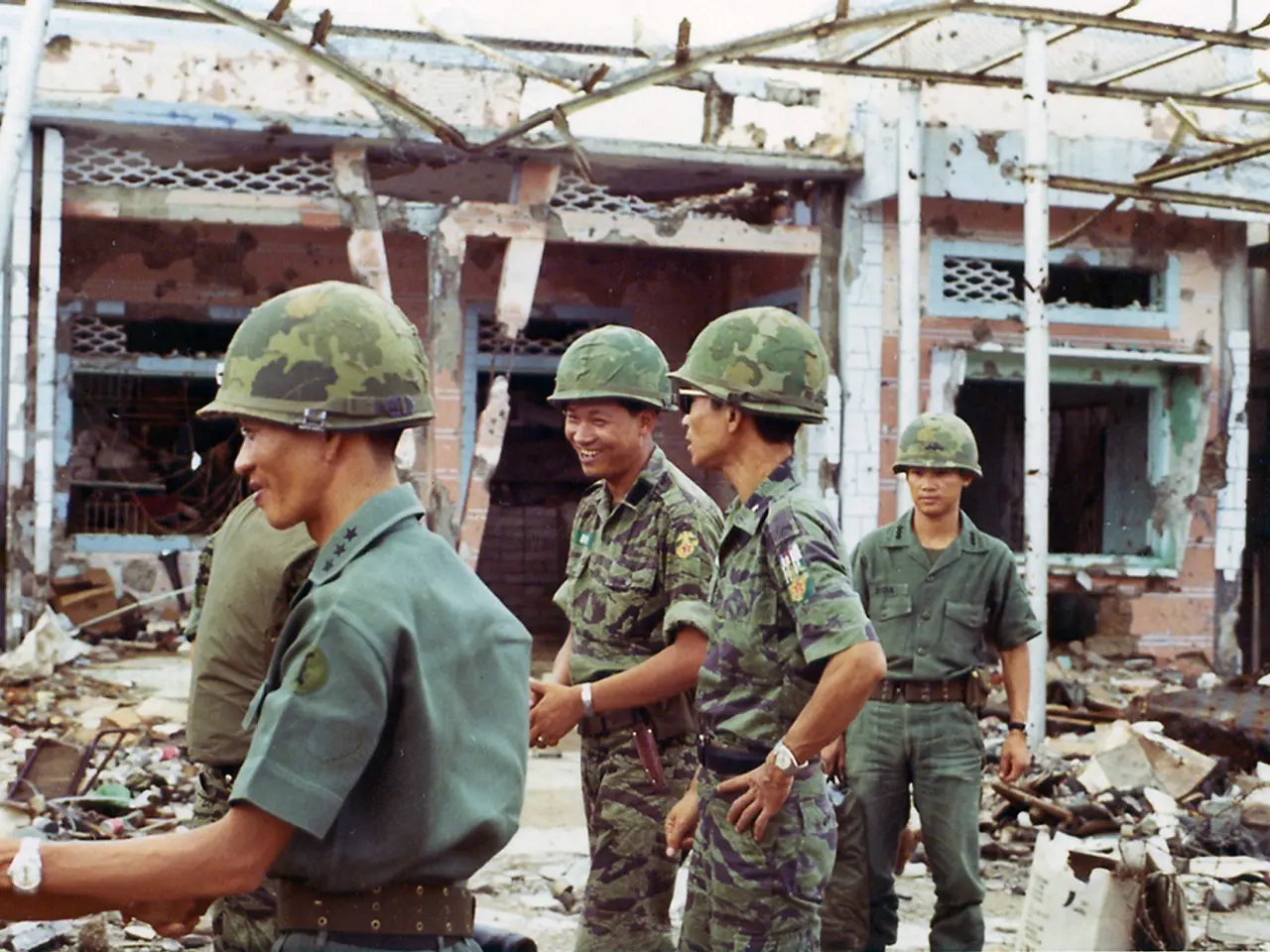Israel's proposed annexation of Gaza City predicted to result in significant casualties, further isolating the nation as an international outcast.
In the heart of the Middle East, the ongoing conflict in Gaza continues to escalate, with 50 hostages still held by Hamas and their associates, according to recent reports. Of these, only about 20 are believed to be alive after nearly 700 days in captivity.
The families of the hostages and their supporters have taken to the streets, organising nationwide strikes and protests in Israel, demanding their release and a ceasefire. The Hostages and Missing Families Forum has urged public action to pressure for the hostages’ safe return.
Israeli Prime Minister Benjamin Netanyahu has rejected partial hostage release deals, insisting that Israel will only accept a deal if all hostages are released simultaneously. He has expressed a clear stance of not compromising on this issue while preparing for further military actions.
Netanyahu's stated goal is to "liberate ourselves and liberate the people of Gaza from the awful terror of Hamas," indicating plans to take control of Gaza and end Hamas’s rule. Israel has been carrying out operations in Gaza and plans to relocate Palestinian civilians to southern Gaza ahead of new offensives, showing preparations for intensified military control.
However, the plan to occupy Gaza has faced opposition from within Israel's military ranks. Military chief of staff, Lt. Gen. Eyal Zamir, has objected to the plan, stating it would drag Israel into a black hole, requiring a yearlong clearing operation, exposing soldiers to guerrilla warfare, and jeopardizing the hostages.
Despite warnings, skepticism, and opposition, Prime Minister Netanyahu is pushing forward with plans to take over Gaza City. Gadi Shamni, a retired major general of the Israel Defense Forces, stated that occupying Gaza would create more bereaved families, harm Israel's standing in the world, undermine the economy, and deepen the crisis of trust between the government and the military.
Meanwhile, the international community has responded to the plans for Gaza. An emergency meeting of the UN Security Council denounced the plans for Gaza City but did not place a resolution on the table. An alliance of Arab nations has not yet offered to take over governance responsibility as part of an international security mission once Hamas is definitively toppled.
In a recent development, Prime Minister Mark Carney, France, and the United Kingdom announced unilateral recognition of a Palestinian state by September, but the conditions they set would never be accepted by Hamas.
Netanyahu has conceded that Israel is losing the propaganda war, in part because Hamas and its global acolytes have played that game more effectively. However, he has blamed Hamas and the United Nations for millions of pounds of food aid that had been rotting on the Gaza border due to the UN's unwillingness to deliver it.
The situation in Gaza remains tense, with civilians being killed as mobs surge toward food distribution points, through corridors that were supposed to be safe but aren't. The conflict continues to raise humanitarian concerns, with civilians caught in the crossfire and the hostages at risk of death by starvation, Israeli bombardment, or execution.
References: 1. Article 1 2. Article 2 3. Article 3
- The ongoing conflict in Gaza has spurred international news coverage, featuring articles about the hostages, protests, and potential military action.
- The situation in Gaza also dominates the general-news section, with reports on the hostages' status, humanitarian concerns, and government policies.
- In Canada, local media outlets have been covering the Gaza conflict, focusing on the hostages and the role of the Canadian government in international diplomacy.
- Sports, economy, and community news have taken a backseat, giving way to the intense focus on the Gaza crisis and its impact on the world.
- The opinion pages of newspapers have been filled with commentaries on the conflict, from both sides of the political spectrum, offering diverse viewpoints on the hostage situation, government policy, and potential resolutions.
- As the situation in Gaza escalates, many news outlets have turned their focus to war-and-conflicts reporting, providing regular updates on the ongoing hostage crisis and military operations.
- In Toronto, the community is closely watching the developments in Gaza, with many expressing their opinions and concern on various social media platforms, reflecting the broader global discussion.
- As the hostage crisis unfolds, law and politics have been intertwined, with ongoing negotiations, protests, and recent announcements regarding Palestinian state recognition adding fuel to the complex Gaza conflict.






